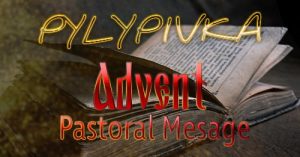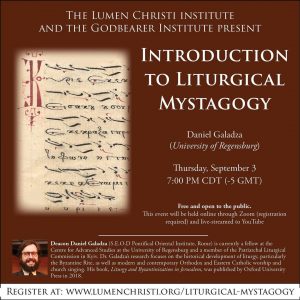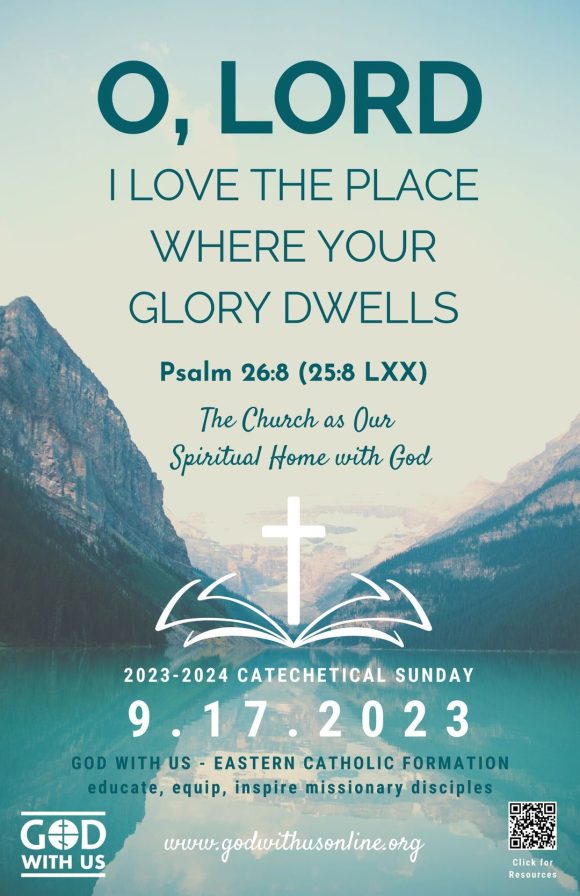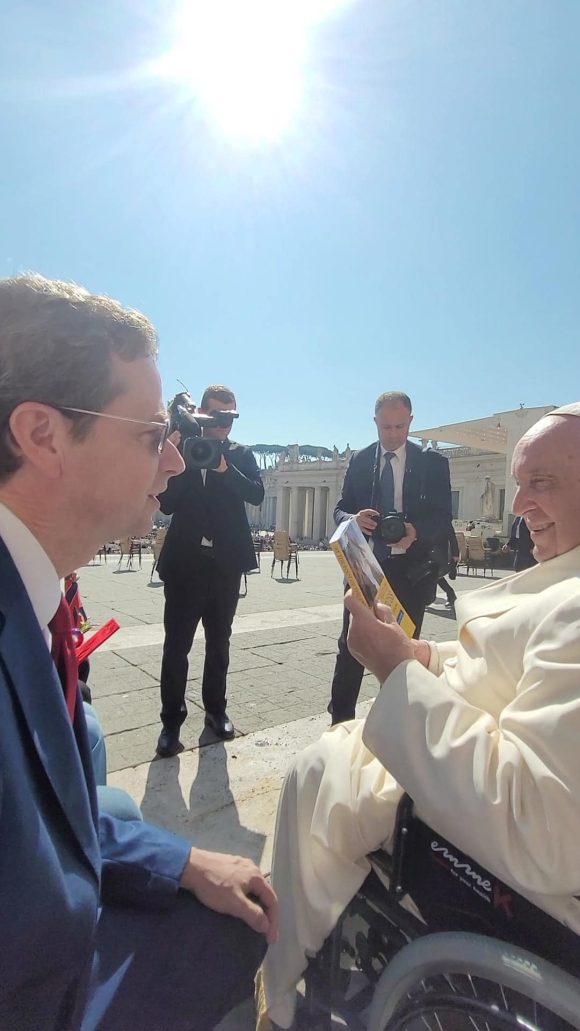Something interesting read of Archbishop Andrei Sheptytsky and the Ukrainian Jews.
Category: Faith and Reason
Catechetical Sunday 2023
John Burger speaks with Pope
Today (April 19, 2023) at the General Audience in St. Peter’s Square, John Burger presented “At the Foot of the Cross: Lessons from Ukraine” to Pope Francis.
Thinking of Benedict
Three articles worth our time in seriously reflecting upon the life, work and service of Benedict XVI. Two of the articles are written by Connecticut resident John Burger, an exceptional journalist. The other is a published essay by Australian Tracey Rowland, a well-known theologian and expert on the thought of Benedict.
1. Benedict XVI, the pope of surprises
2. “One of the truly great”: Pope Benedict passes at 95 on the last day of 2022
Faith and Doubt
Pray for Texas

Ukraine, World War III and Pope Francis’ roadmap for the church
In America magazine, the U.S. periodical published by the Jesuits, there is an article by Father Tomáš Halík, “Ukraine, World War III and Pope Francis’ roadmap for the church.” Halík is a professor of sociology at Charles University, Prague.
The article has an interesting thesis and worth the time reading. However, the author’s note of Pope Francis’ contribution lacks. Not because of the author but because of the Pope.
One take-away:
“If the West is now unwilling or unable to help Ukraine sufficiently to stop Russian aggression and defend its national independence, if the West sacrifices Ukraine on the basis of the false illusion that this will save world peace—as happened in the case of Czechoslovakia on the threshold of World War II—then this will be an encouragement not only for further Russian expansion, but for all dictators and aggressors around the world.”
The Philip’s Fast message from the US Ukrainian Bishops 2020
 PHILIP’S FAST (PYLYPIVKA) PASTORAL OF THE UKRAINIAN CATHOLIC HIERARCHY OF THE U.S.A. TO OUR CLERGY, HIEROMONKS AND BROTHERS, RELIGIOUS SISTERS, SEMINARIANS AND BELOVED FAITHFUL,
PHILIP’S FAST (PYLYPIVKA) PASTORAL OF THE UKRAINIAN CATHOLIC HIERARCHY OF THE U.S.A. TO OUR CLERGY, HIEROMONKS AND BROTHERS, RELIGIOUS SISTERS, SEMINARIANS AND BELOVED FAITHFUL,
Glory to Jesus Christ!
St. Philip’s Fast or Pylypivka is about to start. It is a joyful 40-day fast, which begins on November 15, the day after the feast of the apostle St. Philip, and lasts until December 24, Christmas Eve. This fast is meant to prepare us spiritually for the great and solemn holyday – the Nativity of Our Lord Jesus Christ. This is the time given to us to deepen our understanding and awareness of God’s mystery – the Incarnation of the Son of God and the coming of the Messiah, the King of Peace, Emmanuel and the Light of the world. It is time for us to find and rediscover true joy of the Nativity of Our Lord through prayer, meditation, and acts of charity, not like it is in the artificial atmosphere of Christmas parties, buying and exchanging gifts and enjoying specially prepared holiday delicacies.
We may think that the coming of Christ is a completed event and a historical fact of the past, and the anticipation of His coming is only symbolic for us. It is not! Christ always comes to us. He is constantly born spiritually in the heart of every person who believes and expects Him. He comes to us in prayer and the Holy Mysteries, especially in Holy Confession and Communion. Today He comes to be with us and among us.
This year, St. Philip’s Fast and the understanding of the coming of Christ and His presence among us takes on a special meaning and significance for us. In the midst of the relentless COVID-19 pandemic, the suffering of many from this deadly illness, often resulting in the sad and tragic loss of family members and friends, political discord and instability, riots, wars and human rights abuses around the world, we are thirsty for a deep awareness and conviction that Christ the Lord is truly present among us and that His grace is life-giving and necessary.
St. Philip’s Fast recalls for us the Old Testament and the world, which froze in anticipation of the coming of Christ, the Light of the world. We will hear readings from the books of the ancient prophets Nahum, Habakkuk, Daniel, and Isaiah, who prophesied of His coming eight centuries before He was born. They wrote that the Messiah was to be born in Bethlehem, about the escape of the Holy Family to Egypt and the return to Nazareth, about His healing of the sick, about His rejection by the chosen people, about His betrayal and taking thirty silver pieces by one of the apostles, about His crucifixion among robbers, about His side being pierced, about His Resurrection and Ascension to Heaven. Later, the holy evangelists, while writing the Gospels inspired by the Holy Spirit, will include these prophecies to show us that Jesus Christ is the Messiah that everyone expected and that He is truly the Son of God.
Webinar on Eastern Catholic Theology: Liturgical Mystagogy
 The first webinar in a series on Eastern Catholic Theology
The first webinar in a series on Eastern Catholic Theology
Thursday, September 3, at 7PM CDT (8pm Eastern) for the FIRST installment of a webinar series, “Eastern Catholic Theology in Action.” Dr. Daniel Galadza will be the presenter.
Register here: https://www.lumenchristi.org/event/2020/09/Liturgical-Mystagogy
Happy July 4th!
God Bless these United States of America
https://www.youtube.com/watch?v=cAZ8QJgFHOg&fbclid=IwAR1sB1bAGt4T2Q1y3o-_cf-9rgQshdD1N1zLkmcDM9ohTUlQ-7ARMvbn7-I

